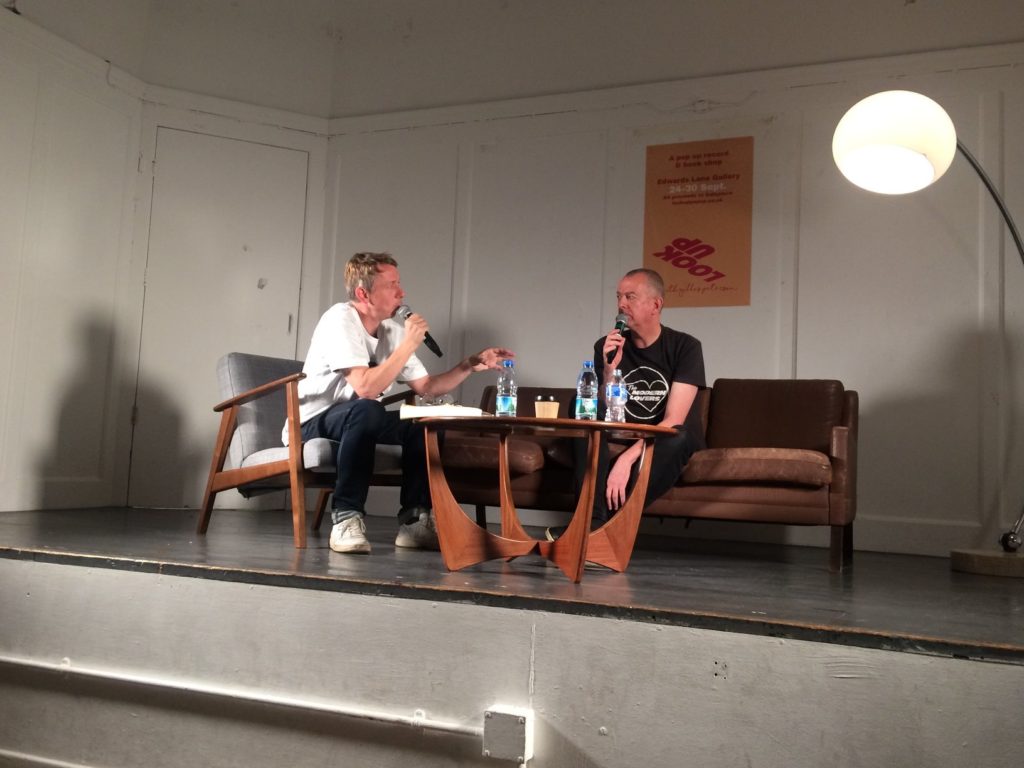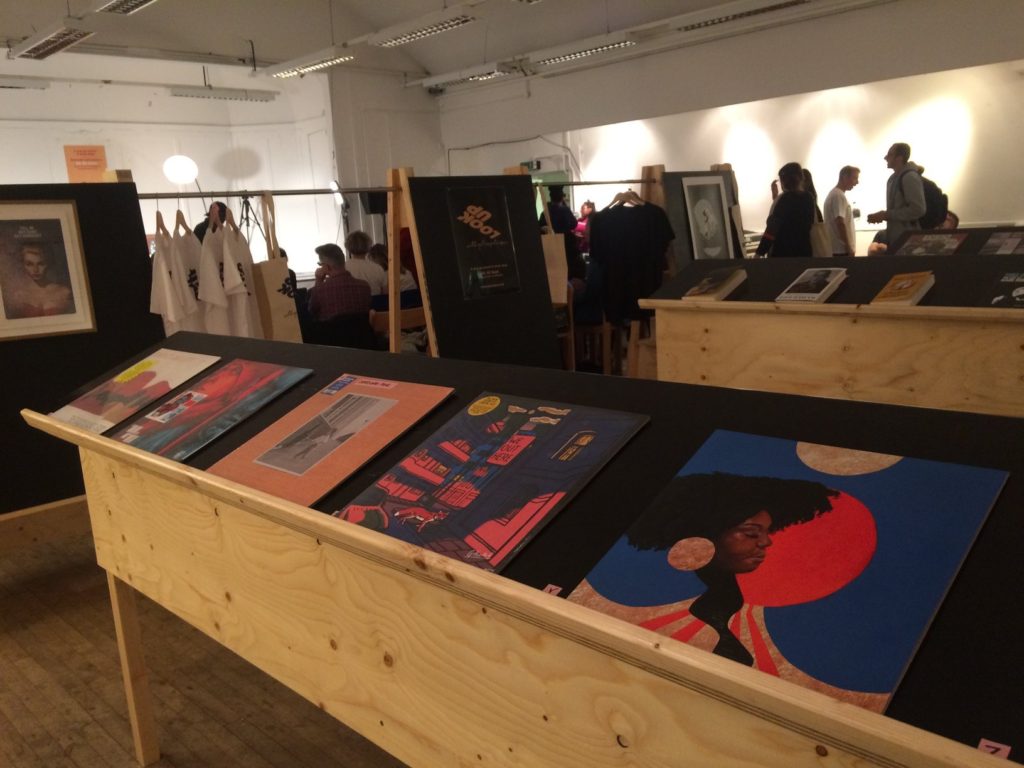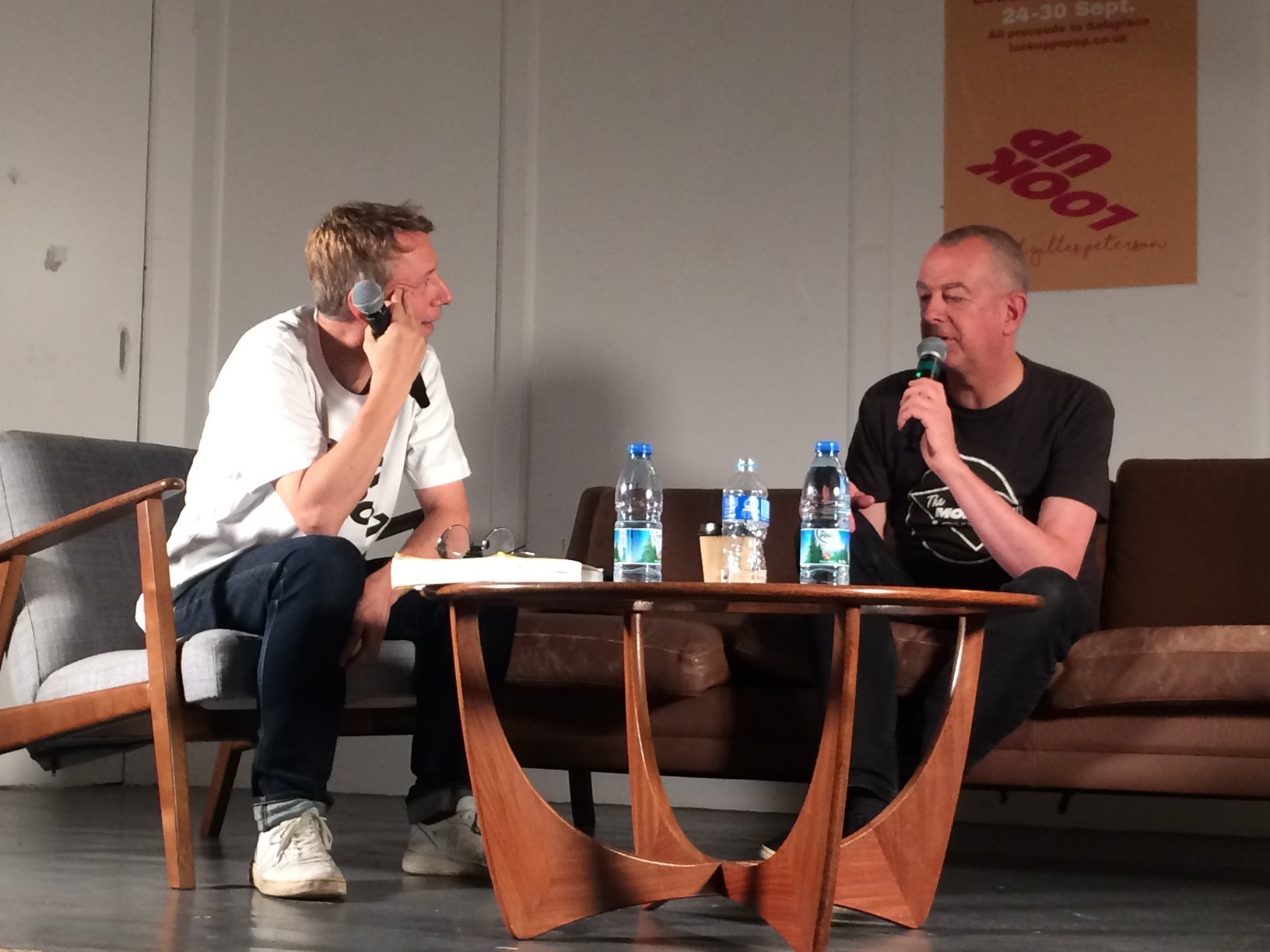As part of the Safaplace mental health charity pop-up called Look Up, run by Stoke Newington School, Gilles Peterson interviewed Will Ashon and Dave Haslam. Aside from the week-long series of events, Gilles also curated the record and book shop. Both Will Ashon and Dave Haslam have been involved in the music business and made a shift to the literary world.

First in Peterson’s hot seat was Will Ashon, the former music journalist who specialised in hip hop. Ashon’s literary output is notably diverse: from novels to the highly original Strange Labyrinth – ostensibly a book about Epping Forest in which, as he comments, he employs the tactic of ‘taking a small subject and expanding on it’. He may have become known for writing about nature but Ashon has now delved into a music-related connection close to his heart (and to Gilles too, judging by his obvious enthusiasm) with his new book about the Wu-Tang Clan called Chamber Music, specifically relating to the group’s debut album Enter the Wu-Tang (36 Chambers).
Ashon talks about his retreat from working in the music industry where he looked after artists and encountered the inevitable struggle of working in a sphere where success is hard to come by. Ashon first heard the Wu-Tang Clan in ’93 and he recalls that sensory overload and the resulting sheer exhilaration, an experience that had a profound effect on him. Even down to a fascination with the album cover with its masked figures. The references may have been lost on him at first but that initial gut excitement cemented his early love.
Espresso and pan au chocolat
Dave Haslam’s approach has been to keep the music and writing aspects chugging along together in as harmonious a way as possible. The city of Manchester and its iconic music output is part of Haslam’s soul; he’s had his finger on the pulse of the city and has DJd there and written about it for over 30 years.

Gilles interviews Dave Haslam
Writing Sonic Youth Slept on my Floor took Haslam two and a half years. He says that it’s the first of his books where he has put himself first, it’s about him primarily, and his place in the Manchester scene. A huge emotional investment, he had to be disciplined and set a routine in order to write. The memoir proved to be a cathartic experience and he realises his luck in having such a rich history to draw on, from the fledgling Hacienda, to Morrissey visiting his flat, to Joy Division’s final performance.
Haslam also refers to the subject of mental health, which is, after all, the reason that this whole week of events has come together. He describes the inevitable unsociable hours of a DJ’s schedule which are far from family-friendly and the distorting effects it can have on your psyche. Peterson asks how he manages to get through it: Haslam replies his solution is to sleep from 8pm, rising at 1am for espresso and pain au chocolat. He talks about the disconnect of being the central, focal point of everyone’s night out, yet somehow being removed from it, as Eliot once wrote: ‘The still point of the turning world’.
Recommended reading: all the above, plus Gilles Peterson mentioned This is Hip: The Life of Mark Murphy by Peter Jones.
There are more events at Look Up Pop Up, all proceeds go to Safaplace.
Events held at Edwards Lane Gallery, Stoke Newington, N16.




